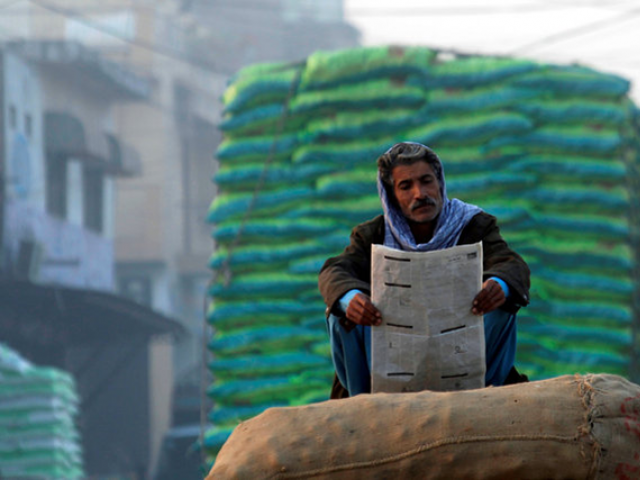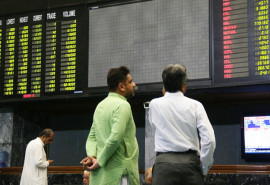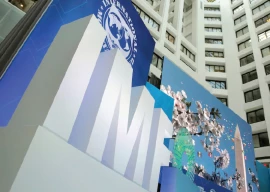
“The worrying signs have been visible for the last five to six months, but the situation is much clearer now,” said Dr Ashfaque Hasan Khan, an Islamabad-based economist.
Pakistan’s trade deficit reaches record high
The State Bank of Pakistan (SBP) also pointed out the growing current account deficit due to the recovery in international oil prices in its recently issued second quarterly report on the state of Pakistan’s economy.
Khan said the concerns of the central bank are not baseless. “People said I am ‘anti-government’ when I pointed out the widening current account deficit in November 2016. Now that the SBP is saying the same thing, people are taking it seriously,” he added.
The current account deficit in the first eight months (Jul-Feb) 2016-17 has already touched $5.47 billion compared to $2.48 billion in the same period of the previous fiscal year. Analysts say lacklustre exports, rising imports and weakening remittances are the major reasons.

To control rising imports, the SBP has already imposed 100% cash margin on the import of certain consumer items to discourage their imports. However, some opposed the central bank’s move, saying that it would increase cost of production of their products.
While speaking to businessmen in Karachi last month, SBP Governor Ashraf Mahmood Wathra said the country had been unnecessarily importing luxury goods for the past few years in the wake of a cushion provided by a sharp decline in the oil import bill.
Therefore, there was a need for some kind of restriction on the import of those items without which the country could easily survive.
“The SBP is doing the right thing by discouraging rising imports. The opposition from some sectors makes sense because our industries want everything according to their desires,” said Khan.
Rise in oil imports
Pakistan’s oil consumption from July 2016 to February 2017 jumped 13% year-on-year mainly due to lower petroleum product prices and higher economic activity. This has also raised concerns.
Pakistan’s trade deficit widens 22%, stands at $9.3 billion
Pakistan is a net oil importer and meets about 75% of the needs through imports. Oil imports carry the heaviest weight in total imports of the country.
“The possibility of significant rise in oil prices is narrow,” said Invest & Finance Securities CEO Muzammil Aslam. “So I don’t think it’s difficult to manage (current account deficit). It’s manageable.”
But my concern is the decline in exports and remittances, he added.
Published in The Express Tribune, April 16th, 2017.
Like Business on Facebook, follow @TribuneBiz on Twitter to stay informed and join in the conversation.
1732071267-0/lana-(2)1732071267-0-405x300.webp)
1727242355-0/Diddy-(1)1727242355-0-165x106.webp)

1732063440-0/elon-(3)1732063440-0-165x106.webp)













COMMENTS (5)
Comments are moderated and generally will be posted if they are on-topic and not abusive.
For more information, please see our Comments FAQ